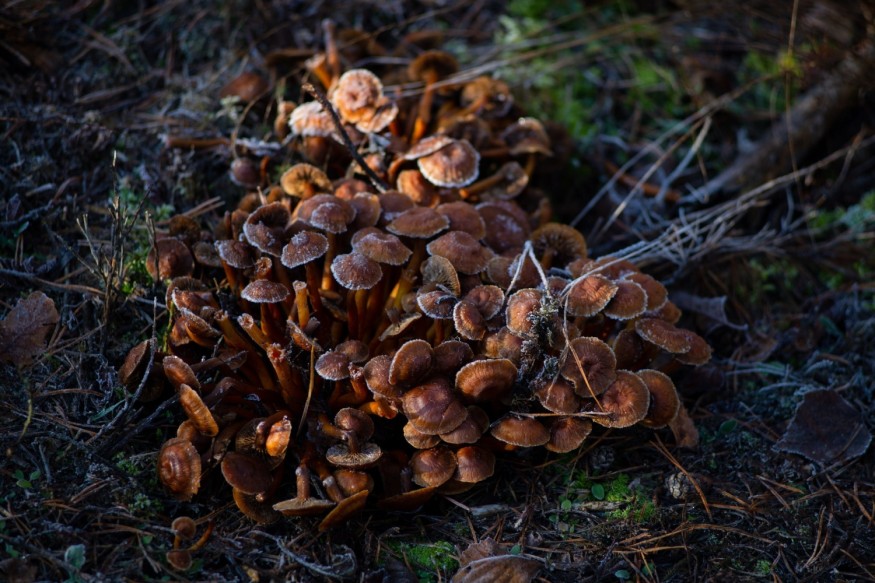
A never-before-seen fungus was found in Brazil and was observed to mummify its prey through a specific sap. It was also found to shoot out a purple stalk out of the corpse.
A New Prey-Mummifying Fungus
The new fungus found in Brazil targets and infects its host in a similar fashion as the zombie fungus that hits its victim and penetrates the body. The tissue of the fungus slowly spreads out through the body of the insect and organizes itself to come up with the fruiting body, which grows out of the anthropoid's head.
Mycologist João Araújo was able to immediately recognize the fungus' unique purple protrusion as an undocumented species of fungus that belongs to the Purpureocillium genus. Typically, such fungal spores latch onto and kill the arachnid or insect prey. A fruiting body then bursts from the corpse in order for more spores to be spread.
When inside the body, the new fungus multiplies like yeast cells. It then overpowers the immune system of the host and facilitates infection. As such, its development goes on as single cells start linking with one another. They start organizing themselves in order to create a fruiting body that is outside of the host. Such mechanisms, however, may vary from species to species.
The Mysteries of Fungi
Species from the Purpureocillium genus share some striking similarities with its sister genus Ophiocordyceps, which includes the zombie-ant fungi featured in HBO's "The Last of Us." Interestingly, the new fungal species was also found to belong to the same family as the said popularized zombie-ant fungi.
Mycologist Jennifer Luangsa-ard from the National Center for Genetic Engineering and Biotechnology in Thailand explains that the purple specimen is but the seventh species belonging to the Purpureocillium genus that has ever been discovered. Such fungal species can be found throughout the globe, including Japan. They have typically been regarded as the same fungal species.
Interestingly, they also include specific species that lead to skin and eye infections among those with compromised immunity.
What specialists know about the fungi kingdom is surprisingly little, even though these species are vital to human food, health, and the environment. As such, Liangsa-ard also explains that based on conservative projections, just 10% of all species have been identified, adding that there is still so much to unravel.
Araújo explains that their study proposes that the P. atypicolum covers several species that have not yet been described, adding that the fungus discovery in Brazil is just one of the many in the lineup.
The great popularity of HBO's "The Last Of Us" could enable people to find more species of fungi. In most cases, these fungi hide in plain sight.
RELATED ARTICLE : Stunning Photo of a Fungus Making a Dead Fly Into a 'Zombie' Wins Prestigious Award
Check out more news and information on Environment and Climate in Science Times.
© 2025 ScienceTimes.com All rights reserved. Do not reproduce without permission. The window to the world of Science Times.











